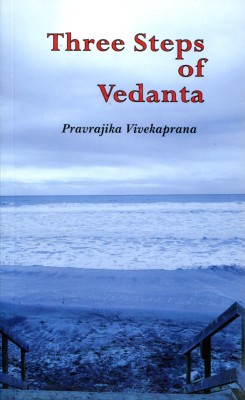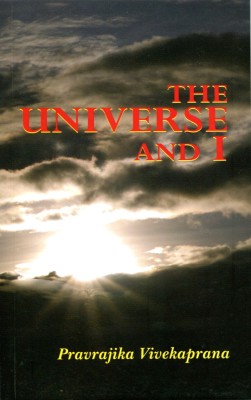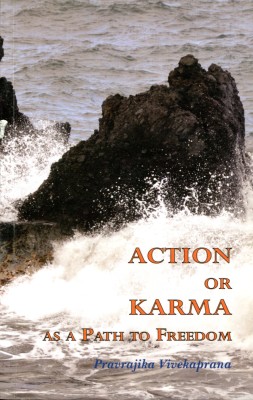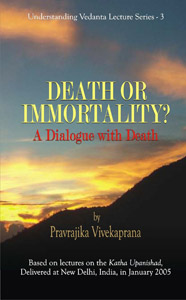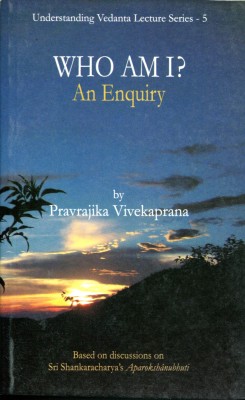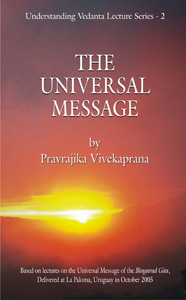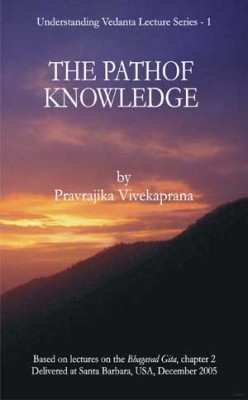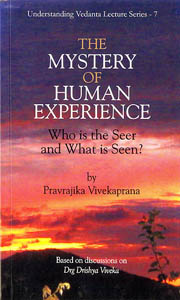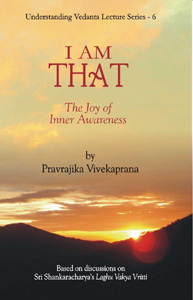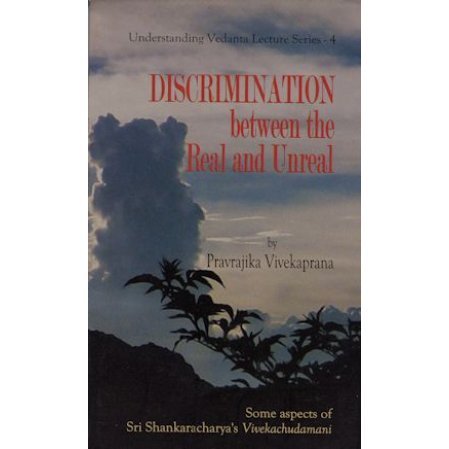Understanding Vedanta Lecture Series
Three Steps of Vedanta (Series #9)
"There are three steps in our knowledge of things; the first is that each thing is individual and separate from every other; and the next step is to find that there is a relation and correlation between all things; and the third is that there is only one thing that we see as many." - Swami Vivekananda.
More info →Universe And I (Series#11)
In this book, based on Swami Vivekananda's lectures 'The Cosmos - The Macrocosm and the Microcosm', the author helps us to become aware of what is perhaps the most vital connection that we, as individuals, have with the universe. Without this intrinsic link, we can never understand the concept of the universal oneness. The connection of modern science and ancient Indian thought is understood in the light of Swami Vivekananda's explanation of the macrocosm (the universe) and microcosm (the individual "I").
More info →Action or Karma – As a Path to Freedom (Series#10)
Life presents an unending whirlpool of activity and we all work incessantly but never seem to move forward. What is the way out? How can we attain knowledge of our true nature and purpose of life, and be free while engaged in the field of activity? These are the topics discussed, based on Swami Vivekananda's lectures 'Karma in its effect on character' and 'The Secret of work'.
More info →Death or Immortality? A Dialogue with Death (Series#3)
Nothing is more fascinating and yet shocking to human mind than death. The Katha Upanishad is a dialogue between a young boy Nachiketa - a seeker of Truth, and Yama - the Lord of Death. Who or where is God? How relevant is the sense world? And finally, what is beyond death? All these are discussed and explained very simply and directly in this book. Based on lectures on the Katha Upanishad given in New Delhi, India in 2005.
More info →Not in Stock
Who Am I ? : An Enquiry (Series #5)
Based on lectures on Sri Shankaracharya's Aparokshanubhuti given in New Delhi, India in 2007. Aparokshanubhuti means direct perception of our own true self unmediated through any other agency. Vedanta says that without enquiry there is no knowledge. The need for enquiry is to understand "Who am I?" and "Why am I here?". The answers, as given by Shankaracharya, are found through direct experience.
More info →Universal Message, The (Series#2)
Based on lectures on the universal message of the Bhagavad Gita given at La Paloma, Uruguay in 2005. The five articles in this book have a very specific focus - the attitude of the mind. Sri Krishna in his dialogue with Arjuna, gives the very powerful yet simple message for all humanity: Change your attitude, take responsibility, understand your goal, and contribute to the universal pool with an attitude of sacrifice.
More info →Path of Knowledge, The (Series #1)
Chapter Two of Bhagavad Gita contains the essence of the entire philosophy of Hinduism. Here Lord Krishna expounds to the bewildered Arjuna the concepts of the Real and unreal, death and rebirth, pleasure and pain, the nature of Atman, the characteristics of the man of wisdom and the need to control the senses. These talks, based on the Chapter Two of Bhagavad Gita, were given at Santa Barbara, California in 2005.
More info →Mystery of Human Experience : Who Is the Seer and What is the Seen? (Series #7)
In our concept of experience, who is the subject and what is the object? Who is the seer, what is the seen? Based on Shankaracharya's 'Drg Drsya Viveka', the author helps us to discriminate between the experiencer and the object of experience, the ultimate Reality and apparent reality. Based on talks delivered at Pangot, India in 2009.
More info →Not in Stock
I Am That : The Joy of Inner Awareness (Series#6)
Talks based on Sri Shankaracharya's 'Laghu Vakya Vritti', delivered in Mumbai, India 2008.
The author helps us to go into deep analysis of each of the 18 verses and understand the relevance of those ideas in our daily lives. She helps us to realize that until we can appreciate the joy of inner awareness and pure consciousness, we shall remain in the whirlpool of virtual reality.
Discrimination between the Real and Unreal (Series #4)
Some aspects of Sri Shankaracharya's Vivekachudamani (Crest Jewel of Discrimination), as discussed during talks given in New Delhi, India in 2007. In the first half of the book, the author introduces and explains various central concepts of Vedantic philosophy and encourages self-study. In the second half, some selected verses of Vivekachudamani are commented on.
More info →
 Streaming
Streaming